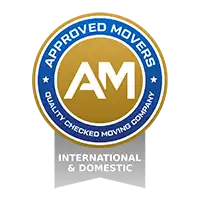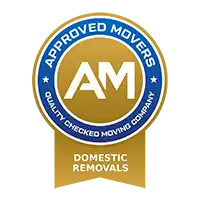
Keyword Research Tools for Movers
Keeping pace with the constant evolution of technology and growth strategies is essential for businesses in fast-moving sectors like moving and logistics. Staying updated on digital trends, whether through adopting cutting-edge moving company software or leveraging innovative marketing strategies, plays a key role in building brand authority. Among these approaches, keyword research tools serve as a valuable resource, blending marketing and operational insights for a unified objective: brand visibility and strength. This article explores the most effective keyword research tools that movers should consider to boost their online presence and lead generation.
Why is Keyword Research Important?
Today, search engines are the go-to source for nearly any query, with statistics showing that 93% of online searches start with a search engine. Keywords streamline the search process, allowing users to input just a few words to receive relevant results. Keywords form the backbone of search engine algorithms, allowing users to find products, services, and information quickly and effectively.
Why is Keyword Research Important for Moving Companies?
Movers typically offer a set range of services—like moving, packing, and storage—which vary based on distance (local, interstate) and type (residential, commercial). When combined with specific locations, these services create highly relevant search terms (e.g., “moving companies NYC” or “self-storage Brooklyn”). Ranking for these keywords improves visibility in search results, making keyword research essential for identifying competitive and high-volume terms that can attract potential customers.
While a long-term SEO strategy is required to rank effectively for these keywords, it all begins with pinpointing which keywords to target. Professional SEO consultants, like Movers Development, offer expertise, but a DIY approach using keyword research tools is also feasible.
Top 9 Keyword Research Tools for Movers
Below are some of the most reliable tools for movers aiming to conduct keyword research efficiently:
- SEMrush
A go-to for competitive analytics, SEMrush identifies up to 10 keywords competitors are targeting, making it a strong choice for in-depth keyword insights.- Advantages: Long-tail keyword suggestions, keyword trends, and traffic insights.
- KWFinder
User-friendly and suited for beginners, KWFinder simplifies identifying keywords with low competition.- Advantages: Multilingual support, competition statistics, and an in-depth SERP overview.
- Ahrefs
Known for robust keyword analysis, Ahrefs offers extensive keyword data backed by clickstream metrics.- Advantages: Keyword difficulty scores, global support, and enhanced click-through metrics.
- Google Keyword Planner
Free and accurate, Google Keyword Planner provides search volume data directly from Google.- Advantages: Precise search volume, ideal for business websites, and user-friendly.
- GrowthBar
Beyond keyword suggestions, GrowthBar offers content outlines and competitor insights.- Advantages: AI-generated content outlines, rank tracking, and keyword data export.
- LongTail Pro
Focused on long-tail keywords, LongTail Pro provides insights into keywords with high conversion potential.- Advantages: Detailed metrics and high SERP lookup capacity.
- Majestic
A holistic tool for monitoring website health and keyword competition, Majestic is suitable for businesses of all sizes.- Advantages: Comprehensive toolkit and competitive analysis.
- Keyword Tool
Known for data mining, Keyword Tool is versatile, allowing research on multiple search engines.- Advantages: Google Autocomplete and social media keyword analysis.
- Serpstat
A well-rounded solution offering keyword research, website analysis, rank tracking, and backlink analysis.- Advantages: Competitor graphs, keyword trends, and budget-friendly options.
How to Use Keyword Research Results
Effective keyword selection involves considering several key factors:
- Search Volume: Target keywords with significant search interest.
- Ranking Difficulty: Choose a mix of easy-to-rank and high-competition keywords.
- Business Priorities: Focus on keywords that align with your service priorities, such as long-distance moving.
- Trends: Temporary events (e.g., seasonal relocations) may create new keyword opportunities.
With a well-defined keyword list, a moving business can lay the foundation for a targeted SEO strategy. Consistent optimisation and adaptability to digital trends are vital for long-term success in the moving industry.





